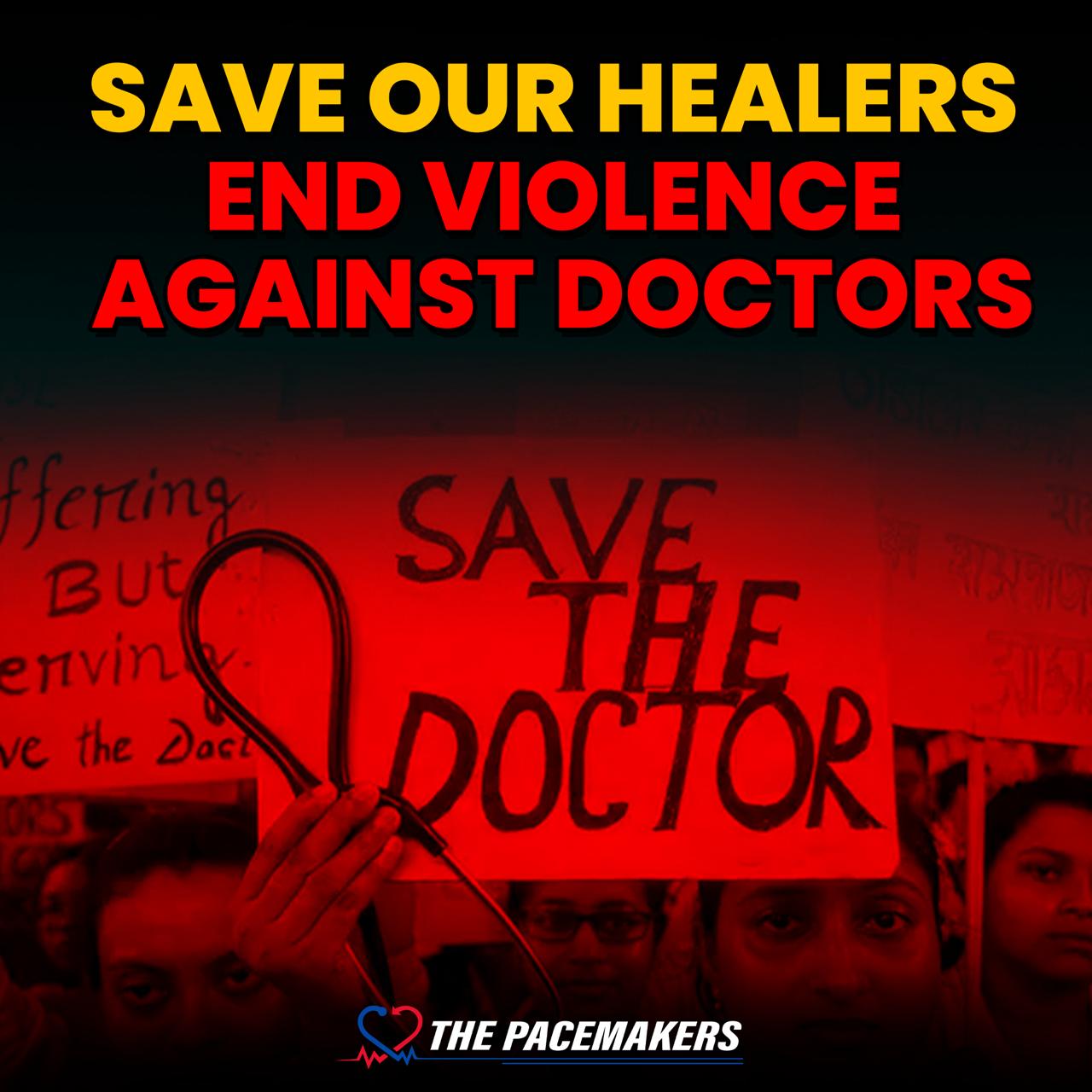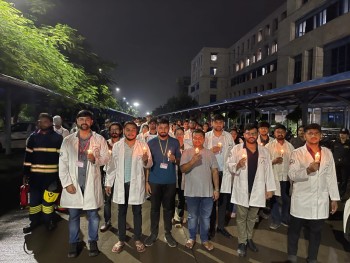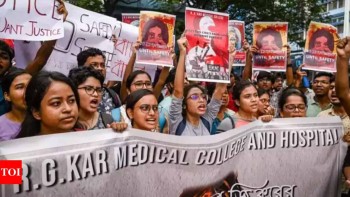The pursuit of a medical career is often considered a noble and prestigious journey, one that requires immense dedication, intelligence, and resilience. Yet, behind the facade of white coats and healing hands lies a complex and deeply troubling reality faced by medical students and resident doctors. The profession, demanding as it is, comes with profound challenges that place an unbearable strain on the mental, emotional, and physical well-being of those on the frontlines. The issues they encounter are not simply occasional hurdles but systemic problems that demand urgent attention and reform.
The Burden of Endless Hours
The recent unfortunate incident at RG Kar Medical College Kolkata has exposed one of the most glaring issues- the relentless hours that resident doctors endure, often without any form of respite.The world is shoked to know that the victim resident doctor was on duty continiously for 30 hrs.
Weekends and days off seem like distant dreams, as their schedules stretch into unbroken weeks of service. This relentless workload, without adequate rest or recovery, drains the spirit and compromises the quality of care they can provide. Medical practitioners, especially those in their formative years, are not machines. The profession must recognize the need for humane working hours to ensure the longevity of both their careers and their mental health.

Lack of Proper Facilities
Compounding the issue of long working hours is the lack of basic infrastructure within many hospitals. Duty rooms for resident doctors, when available, are often inadequate, lacking the privacy or comfort required for meaningful rest. The absence of proper facilities makes a difficult job even harder, as there is no space for doctors to recharge or find solace in the midst of their demanding roles.
Violence in Healthcare Settings
Perhaps one of the most alarming trends is the growing incidence of violence against resident doctors and interns. Hospitals, intended to be places of healing, are often scenes of conflict. Local politicians and mismanaged crowds frequently ignite chaos, leaving doctors vulnerable to physical and emotional attacks. In a profession dedicated to saving lives, it is appalling that those who serve are forced to endure such dangers daily. A lack of robust security measures exacerbates this issue, placing doctors at the mercy of the very people they are trying to help.
Overburdened and Underappreciated
The patient load in public hospitals continues to swell, yet the number of resident doctors remains insufficient. This imbalance results in doctors being stretched beyond their limits, sometimes forced to take on tasks that fall outside their professional scope, such as performing duties of paramedics or even ward boys. This overburdening not only devalues their expertise but also threatens the quality of care provided to patients.
Financial Strain and Stipend Injustices
Financial stress is yet another pressing issue for medical students and interns, particularly in private institutions. Exorbitant tuition fees leave many burdened with overwhelming debt, while inadequate stipends add to the financial strain. Interns, despite working up to ten hours a day, receive meager compensation—averaging only 14-15k per month. In some cases, they receive no stipend at all. The financial disparity between the effort expended and the reward received is demoralizing, further contributing to the overall stress experienced by these young professionals.
Arbitrary Bond Policies and Lack of Grievance Mechanisms
Arbitrary bond policies in various states further complicate the lives of resident doctors. These policies often trap them in an exhausting cycle of service without recourse or relief. Additionally, the absence of a strong grievance redressal mechanism to address instances of sexual and academic harassment leaves many vulnerable, with little hope of justice or resolution.
Legal and Criminal Harassment
Doctors also face legal challenges, including criminal culpability in certain cases, which creates a sense of anxiety and fear. Many states fail to follow the Jacob Mathew guidelines, leading to unnecessary harassment of healthcare workers in the legal system. Such stress is an unfair burden on professionals already grappling with the immense pressures of their work.
The problems plaguing medical students and healthcare workers are multifaceted, but there are actionable solutions that can be implemented to address these issues and improve the lives of those who dedicate themselves to the health and well-being of others.
1. Restrict Hospital Visitors: A cap on the number of visitors, akin to airport policies, would significantly enhance security. A nominal fee for visitor passes could generate funds for improving hospital safety measures.
2. Zero Tolerance for Violence: Establishing a nationwide policy of zero tolerance for violence against healthcare workers is crucial. A central law must be enacted to protect those on the frontlines of care.
3. Equal Protection for Private Workers: Private healthcare workers must receive the same protections as government servants in cases of obstruction or violence during their duties.
4. Institutional Accountability: Hospital leadership must be held accountable for promptly lodging FIRs in cases of violence, ensuring swift and decisive action.
5. Increased Surveillance and Alarms: The installation of CCTV cameras and emergency alarms in hospitals would provide an additional layer of security for both staff and patients.
6. Right to Refuse Treatment to Violent Patients: Healthcare workers should have the right to refuse treatment to patients who display violent behavior, safeguarding both their safety and the dignity of their profession.
7. Separate and Safe Duty Rooms: Male and female doctors should have access to separate, well-equipped duty rooms attached to every ward, ensuring their comfort and security.
8. Duty Hour Regulations: Strict enforcement of a maximum 48-hour workweek for resident doctors would provide much-needed relief and prevent burnout.
9. Grievance Redressal Cells: Institutions must establish effective grievance redressal cells at both institutional and state levels to handle complaints related to sexual and academic harassment.
Conclusion
The challenges facing medical students and resident doctors are immense, yet they are not insurmountable. With the right policies in place, we can create a safer, more supportive environment for those who dedicate their lives to the healing of others. It is time to take meaningful action to ensure that the next generation of healthcare workers can thrive in their profession—without fear, undue stress, or violence. Only then can we truly honor the sacred oath to "do no harm"—both to patients and to those who serve them.
(Dr Raj Shekhar Yadav is a senior physician, blogger and social media activist.He tweets @citybrr.Views are personal)











Recent comments
Latest Comments section by users
Guest
Aug 20, 2024
Very aptly described Must be implemented Atmost need of hour
Guest
Sep 01, 2024
Well written sir